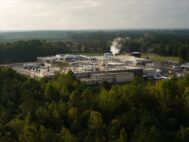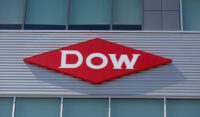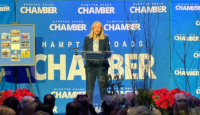Universal Corp. names CFO after withdrawing offer to another
Universal Corp. names Steven Diel CFO after reversing a prior hire. He succeeds Johan C. Kroner, who will retire in July.
Boar’s Head reopens Jarratt plant tied to deadly listeria outbreak
Boar’s Head Provisions reopened its Jarratt meat plant Monday, roughly a year and a half after closing it following a 2024 listeria outbreak.
Dow to cut 4,500 jobs, forecasts weak revenue amid sluggish demand
Dow plans to cut 4,500 jobs as part of a restructuring aimed at boosting profitability amid weak global demand.
Intel results to spotlight turnaround efforts as AI data centers boost chip demand
Intel shareholders are increasingly optimistic as CEO Lip-Bu Tan’s turnaround plan boosts data center demand and shares.
Yokohama Tire plans 392 layoffs in Virginia
Yokohama Tire will lay off 392 workers and reduce production at its Salem plant, with a full closure possible in September.
Fed sees slight economic growth in Southeast
The Federal Reserve’s Fifth District in recent weeks saw modest economic growth, with stronger consumer spending and commercial real estate.
Virginia luxury packaging provider plans $34M HQ expansion
Infinity Global plans a $34 million expansion of its Danville headquarters, creating 150 jobs and more than doubling its Virginia workforce.
Annandale Millwork to add 154 jobs in Newport News
Annandale Millwork and Allied Systems Corp. will invest $11.5 million to expand operations in Newport News, creating 154 jobs.
Solstice Advanced Materials to invest $220M in Chesterfield expansion
Solstice Advanced Materials plans to invest $220 million to expand production at its manufacturing facility in Chesterfield County.
Hyundai Motor Group plans to deploy humanoid robots at US factory from 2028
LAS VEGAS, Jan 5 (Reuters) – Hyundai Motor Group plans to deploy humanoid robots at its U.S. manufacturing plant in Georgia starting in 2028, marking a step toward automating higher-risk and repetitive manufacturing tasks, the South Korean company said. Hyundai unveiled the production version of the Atlas humanoid robot, developed by its unit Boston Dynamics, […]
Avio USA picks Virginia for $500M solid rocket motor factory
Avio USA plans a Virginia solid rocket motor facility, committing up to $500 million to expand U.S. aerospace and defense production.
Spanberger stresses need for stable biz environment
Virginia Gov.-elect Abigail Spanberger said she will prioritize a business climate that is stable, predictable and affordable.























